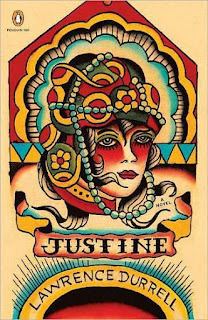 France and shortlisted for the John Creasey (New Blood) Dagger in the UK; The Lonely Witness, which was nominated for the Hammett Prize and the Grand Prix de Littérature Policière; A Friend Is a Gift You Give Yourself, an Amazon Best Book in 2019 and winner of the Prix Transfuge du meilleur polar étranger in France; City of Margins, a Washington Post Best Thriller and Mystery Book of 2020; and, most recently, Shoot the Moonlight Out. All are available from Pegasus Crime. He lives in Oxford, Mississippi.
France and shortlisted for the John Creasey (New Blood) Dagger in the UK; The Lonely Witness, which was nominated for the Hammett Prize and the Grand Prix de Littérature Policière; A Friend Is a Gift You Give Yourself, an Amazon Best Book in 2019 and winner of the Prix Transfuge du meilleur polar étranger in France; City of Margins, a Washington Post Best Thriller and Mystery Book of 2020; and, most recently, Shoot the Moonlight Out. All are available from Pegasus Crime. He lives in Oxford, Mississippi.
Recently I asked Boyle about what he was reading. His reply:
Without a doubt, the best book I read this year was Agota Kristof's The Notebook, The Proof, The Third Lie. I’d heard of this trilogy of novels somewhere along the line—I’d written down the titles in a notebook—but it must not have been a substantial lead because I didn’t follow through until recently. An absolute masterpiece. Can’t remember the last time I gulped down 500 pages so hungrily. The bones of a dark fable or fairy tale.Visit William Boyle's website.Dissects the inhumanity of humankind, the ravages of war, the small lives lost in all the destruction, identity, memory, reality, truth, storytelling, borders, the depths of perversion and depravity and despair, and ways of surviving in a fucked-beyond-repair world. Grim, strange, jagged, haunting, elemental, full of real pain and heart and yearning. Prose that’s like drinking cold, clean water from a sacred spring. Just incredible. Should be said that this book features some of the most horrifying stuff I’ve ever read, and it’s all rendered in the most direct and detached language, which somehow makes it even more emotional and affecting. Fascinating to read this the same week I watched another Hungarian masterwork, Lili Horvát’s film Preparations to Be Together for an Unknown Period of Time, which also questions what happens to the fabric of reality in times of trauma (in that case, love is the source of trauma). Anyhow, this is one of the most challenging, moving, and thought-provoking books I’ve ever read. Bummed it took me so long to find but thankful I found it now.
Q&A with William Boyle.
The Page 69 Test: Shoot the Moonlight Out.
My Book, The Movie: Shoot the Moonlight Out.
--Marshal Zeringue












